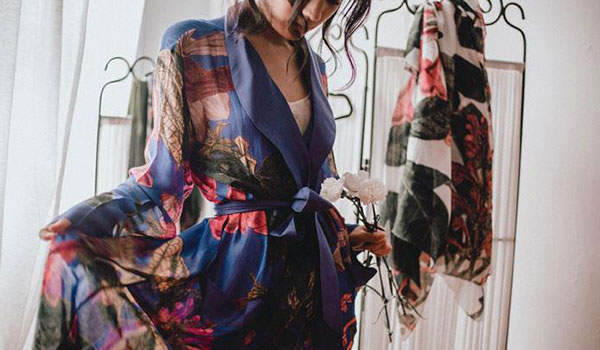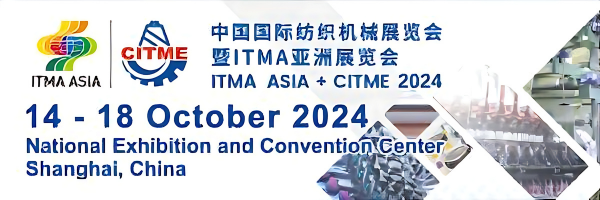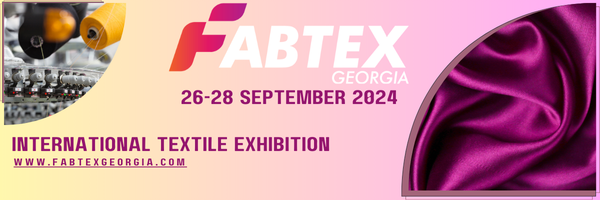The first two days of London’s leading festival of fashion, Pure London at Olympia London, has showcased the bold and the brave new collections from fashion’s favourite brands and celebrity designers, alongside thoughtful and insightful talks, inspirational catwalk shows and trend presentations.
Pure London, an ITE Group plc event, took place from July 21-23.
Kicking off on the main stage on July 21, visitors were treated to a vibrant and inspiring catwalk show presenting a line-up of the key trends for the SS20 season, in collaboration with Unique Style Platform (USP). USP’s in-depth future forecast followed, highlighting the consumer attitudes and big picture cultural drivers that will impact the fashion markets for SS20.
Honest celebrates imperfection and the Japanese concept of Wabi Sabi, an aesthetic that centres around the acceptance and glorification of imperfection. A blend of raw untreated neutrals combine with vibrant colours of the ocean with yellow tinted bamboo were showcased.
Pure London: Where Fashion Meets Innovation
Limitless is a brave and rebellious attitude, breaking boundaries and exemplified by activists such as Greta Thunberg and Alexandria Ocasio-Cortez as the new icons for a new generation. A brave palette of neon’s, pink and lilac mixed with bitter chocolate and monochrome was featured on elevated sportswear mixed with 80s and 90s style tailoring.
A return to handmade crafts drove Ritual, seeking serenity in meaningful experiences. Modern mysticism had led to an otherworldly mood of soft tailoring and floaty layers mixed with contemporary Western touches and boho prairie dresses in a sun kissed palette of peaches and orange.
Brave is about being maximalist, eccentric, bold and unexpected. It means hybrid combinations and unexpected collaborations, rethinking traditional retail and pushing advanced technology. Digital avatars were the new breed of influencers. Colours with clashing brights and electric combinations mixed with paler tones were presented.
Pure London brought together a fascinating array of speakers including Nanya McIntosh from Hope Fashion who shared her 30 years experience in fashion as well as building a business around empowering and inspiring the 50-plus female to feel confident dressing whatever size and shape. Ageism trailblazer Jacynth Bassett from the-bias-cut.com also discussed the significance of fashion and style for every age group in her talk ‘Humans Not Consumers’.
A subject that featured heavily in both the keynote talks with Patrick Grant on July 21, Brigitte Stepputtis from Vivienne Westwood, and the United Nations panel conversation with Kerry Bannigan from Conscious Fashion Campaign, Pauline Op de Beeck from Carbon Trust, Tamara Cincik from Fashion Roundtable and Melanie Traub of People Tree was that harnessing technology, innovation and science and collaborating and sharing that knowledge will provide the solutions to the most damaging and problematic issues facing the fashion industry.
Returning to traditional skillsets such as sewing and re-building the British manufacturing industry were also touted as crucial for future generations.
“We need to change the overall mindset of how we produce and consume. Our British factories help sustain the local economies, we know what is made, by who and when. We have super simple stable supply chains,” said owner of Savile Row tailor Norton & Sons, and keynote speaker Patrick Grant. “I did a quick back of an envelope calculation, and worked out that if you could get half the UK school kids back in a woollen jumper you could re-employ every knitter that had lost their job in Scotland in the past 50 years.”
Commenting on the UK government’s rejection of all recommendations made by the Environmental Audit Committee report into fast fashion Grant felt there should be stricter regulations to clean up the industry including stricter labelling. “I don’t think the audit committee went nearly far enough; I think that everything we buy that’s made of plastic should be labelled plastic. Because consumers don’t know what polyester or acrylic or nylon are. Virgin plastics should be labelled. You have a picture of a diseased lung on the back of a cigarette packet. This stuff is as toxic as nicotine. Bad fashion is literally killing stuff. If at the point of purchase, you were presented with something that showed you it, some people just might think twice,” added Grant.
During the United Nations panel Beeck from Carbon Trust highlighted the necessity for collaboration and the brands finding unique solutions to sourcing challenges and making them open source. “We want all brands to use these innovations, there shouldn’t be a competitive advantage to it. There are great innovations in recycling, but it takes a lot of research and investment but now we can breakdown previously unrecyclable material and reuse it,” said Beeck.
Stepputtis from Vivienne Westwood showed how successful a brand can be by putting activism, recycling, upcycling, re-use, natural and sustainable materials at the heart of a business. “We’re not perfect, but we strive to make our clothes with great care, with heritage, to create a modern and efficient brand which has a relevance to our time. When some brands do something incredible it helps others to follow. Vivienne is the trailblazer,” said Stepputtis.
Brands including Selected by Kate Moss were present at Pure London. The 2018 Apprentice winner Sian Gabbidon launched her new swimwear range SianMarie, as did Little Mix’s Leigh-Anne Pinnock who launched In’A’Seashell, at the show.


















